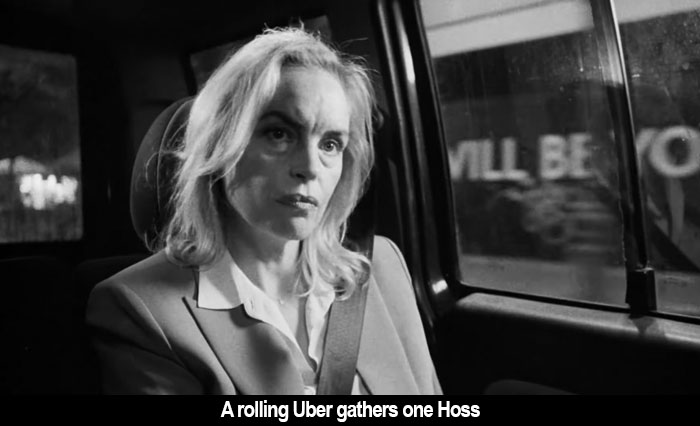Do Not Expect Too Much from the End of the World (2023)
Nu astepta prea mult de la sfârsitul lumii
****/****
starring Ilinca Manolache, Ovidiu Pîrșan, Nina Hoss, Dorina Lazăr
written and directed by Radu Jude
Do Not Expect Too Much from the End of the World is now playing in Vancouver, Montreal, and Winnipeg. Opens in Toronto on May 4 at TIFF Bell Lightbox and on May 29 at the Carlton Cinemas.
by Walter Chaw I know this film. I know the anger that drives it… No, it isn’t anger, it’s incredulity and exasperation, the kind I’ll hold when I’m led to my pyre for the crime of reading a book, or holding a merciful opinion, or wishing for a reasonable solution. It’s the realization that Yeats was right about the worst and the best of us: the one will summon the will to bend the world while the other will fret and demur until the noose is tight and the platform drops away. I have my wit and am able to dunk on inconsistencies with the best of them, and I will do this even as I know there is no profit from shaming the shameless–from pleasuring stunted masochists who pull strength from their collective humiliation. It is my only defense, so I deploy it. I think about all those horror movies where people empty their guns into things that are not injured by bullets. “Deplorable”? At last a term of derision that can unite them like the “n-word” they pathologically want to wield. They are immune to me. I know this. I am Cassandra. Radu Jude’s Do Not Expect Too Much from the End of the World is, like his previous Bad Luck Banging or Loony Porn, a nervous breakdown of a movie–a wildly careening meltdown of a tantrum raging against the dying of all our lights, led by a woman who has reached a place of radical callousness where surprise and horror are disguised beneath a cocksureness as thick and sensitive as scar tissue.

